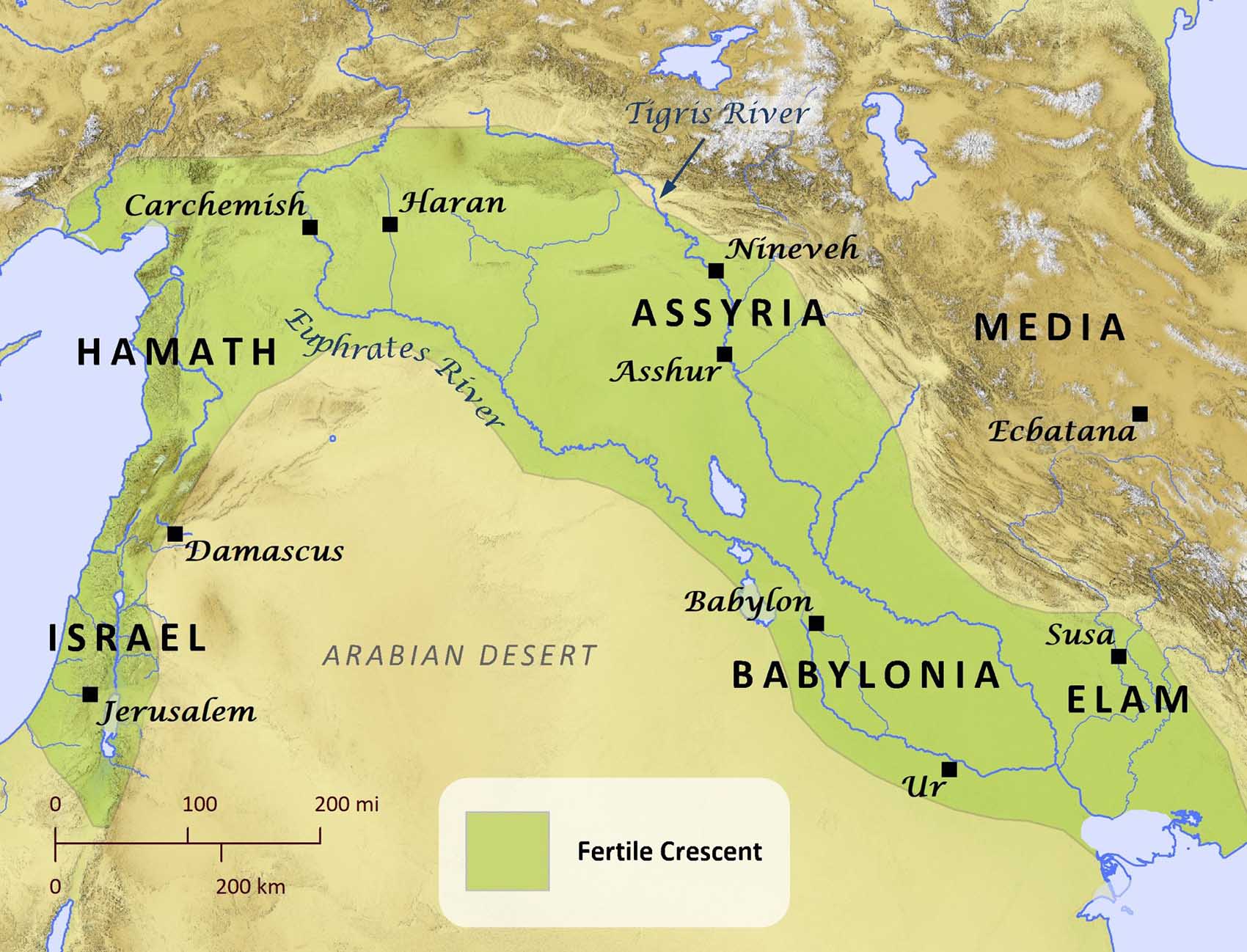Daniel concludes by telling Belshazzar that he is not like Nebuchadnezzar. He, Belshazzar, has not humbled his heart before God, rather he has exalted himself against God by drinking from the Jerusalem cups and worshipping lifeless idols. The hand was sent by God in response.
After having been summoned to interpret the writing on the wall, Daniel first gives a history lesson concerning the former king Nebuchadnezzar and his relationship with the Most High God. God gave authority and fame to Nebuchadnezzar while he was king, but when the king’s behavior became arrogant, God humbled him so low that he lived like an animal for years. Eventually Nebuchadnezzar was restored as king, but only when “he recognized that the Most High God is ruler over the realm of mankind and that He sets over it whomever He wishes” (v. 21).
In great contrast to Nebuchadnezzar is Belshazzar, toward whom Daniel turns the attention of his speech. He says Yet you, Belshazzar, unlike Nebuchadnezzar, have not humbled your heart, even though you knew all this. The history of Nebuchadnezzar’s years absent from the throne, living as a wild beast, was well known to Belshazzar. He had either heard of his grandfather’s madness, or had witnessed it. He also saw his grandfather restored as king, and was surely familiar with Nebuchadnezzar’s confession (recorded in Daniel 4).
Belshazzar had seen the power of the Most High God, who brought the great Nebuchadnezzar low, and lifted him back up once Nebuchadnezzar realized God rules mankind and establishes rulers. Belshazzar knew that Nebuchadnezzar worshipped and glorified this Most High God. Despite this knowledge, Belshazzar chose to defy God. He has not humbled his heart even though Nebuchadnezzar set an example of humility. Worse, Belshazzar has exalted himself against the Lord of heaven. Daniel is referring to what happened only hours before, when Belshazzar called for the vessels of God’s house (the Jerusalem temple) and drank wine from them with his nobles, wives, and concubines.
Belshazzar’s insult toward God was deliberate. He was familiar with the Most High God and specifically commanded that the Jerusalem cups be brought to him for drinking. Furthermore, these sacred vessels were used not only for drinking but for toasting the idols at the feast. Daniel reminds Belshazzar that he praised the gods of silver and gold, of bronze, iron, wood and stone—statues made of materials from the earth. Daniel condemns the futility of worshipping graven images, these idols which do not see, hear or understand. Belshazzar chose to glorify statues which are not alive while defying the God in whose hand areBelshazzar’s life-breath and all his ways. God, who is alive, who is an inescapable reality, who is the only power above all powers and over the very breath we breathe, was not glorified by Belshazzar.
This is the reason the hand was sent to write words on the wall. Daniel explains the hand was from God; the inscription was written out because of the king’s failure to glorify God. The supernatural message was sent immediately as a direct response to Belshazzar because he exalted himself against the Lord of heaven. Daniel will interpret the meaning of the inscription in the following verses.
Biblical Text
22 Yet you, his son, Belshazzar, have not humbled your heart, even though you knew all this, 23 but you have exalted yourself against the Lord of heaven; and they have brought the vessels of His house before you, and you and your nobles, your wives and your concubines have been drinking wine from them; and you have praised the gods of silver and gold, of bronze, iron, wood and stone, which do not see, hear or understand. But the God in whose hand are your life-breath and all your ways, you have not glorified. 24 Then the hand was sent from Him and this inscription was written out.
Check out our other commentaries:
-
Exodus 10:21-29 meaning
Verses 21 – 29 describe the ninth plague. As with the third and sixth plagues, it was unannounced. There was no bartering between Moses and...... -
Hebrews 3:16-19 meaning
The Israelites turned from God, and because of their unbelief, they did not receive their inheritance....... -
Ruth 3:10-13 meaning
Boaz explains that there is a relative closer than him....... -
Daniel 2:44-45 meaning
After the fourth kingdom, God will set up His eternal kingdom....... -
Romans 1:2-4 meaning
Paul is establishing the facts of the gospel: that Jesus was promised in the Old Testament, he was born of David, was God and man,......



